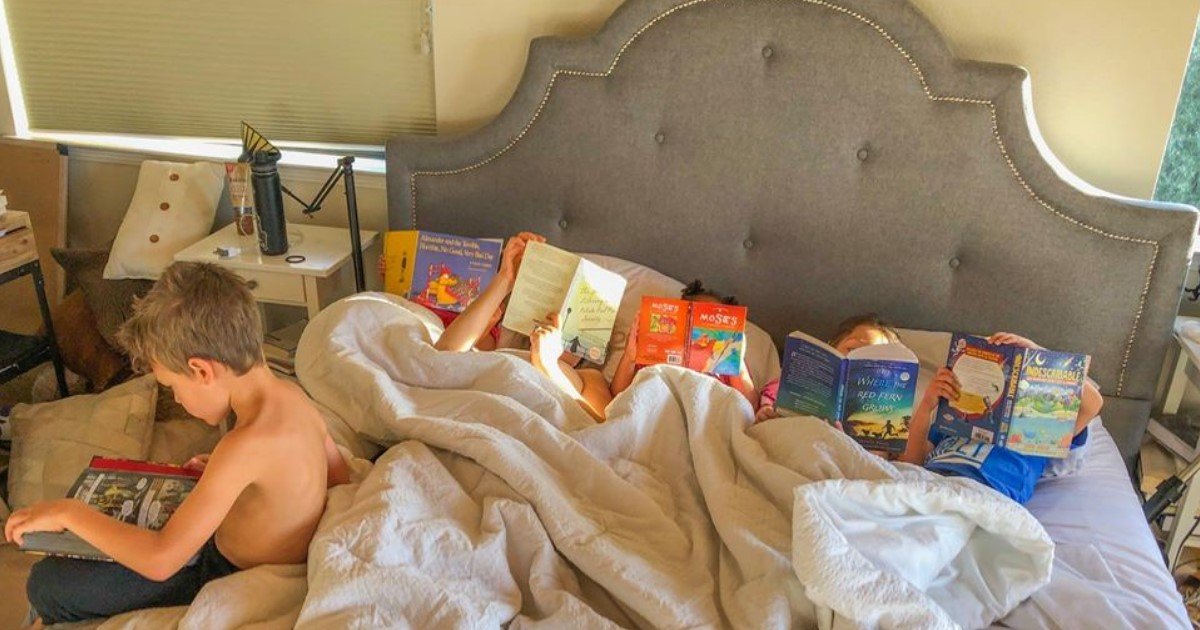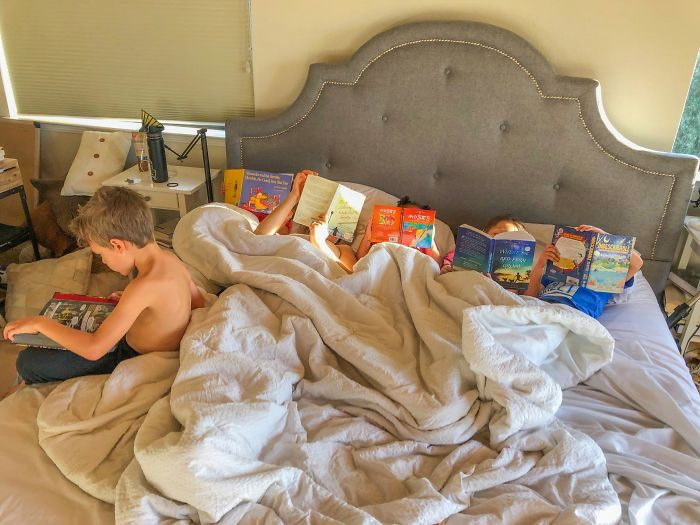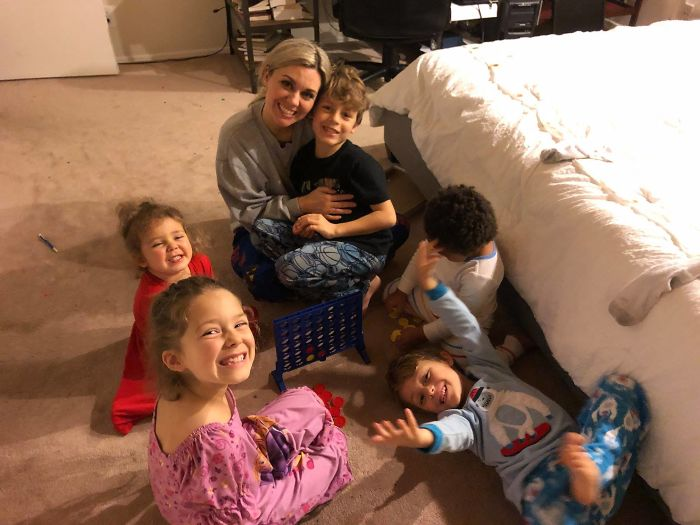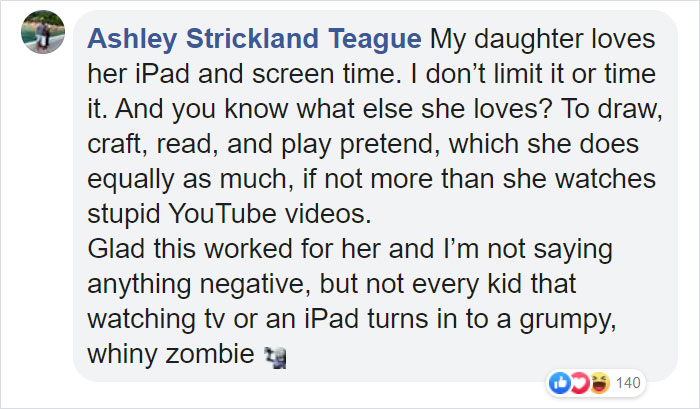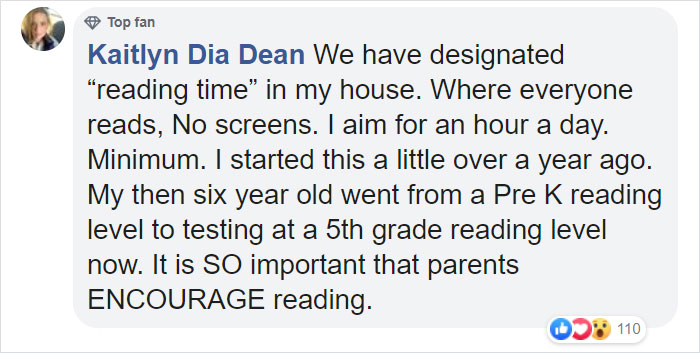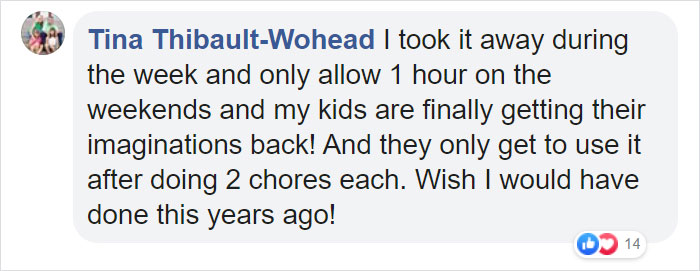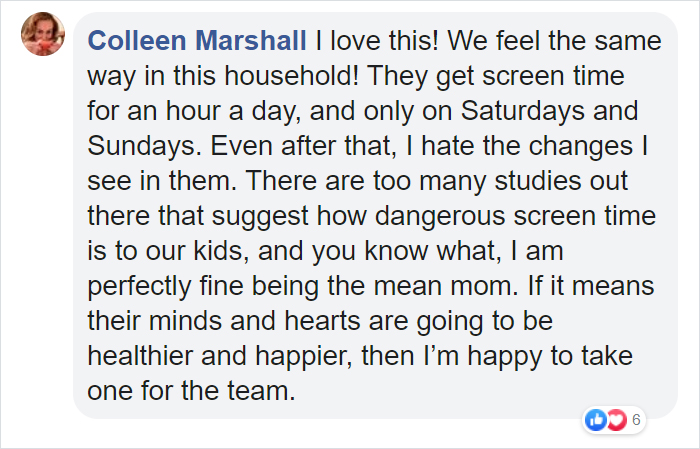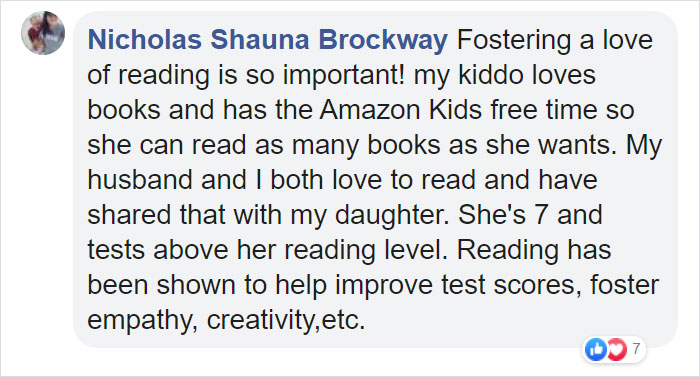A heartwarming photo of six siblings reading books while in bed on a Saturday morning is doing the rounds on the internet.
What makes this photo so amazing is the fact that it hasn’t been staged by anyone.
Molly DeFrank always knew that the time little kids spend on screens – be they phone, computer, or TV – is harmful to them. So DeFrank, who’s a blogger and a writer, forbade her kids from using screens.
Her efforts clearly paid off, as can be seen in the now-viral photo.
Speaking of limiting kids’ screen time, DeFrank told Bored Panda: “It’s so easy to hand your kid an iPad or flip on a show when you want a few minutes to yourself.
“But parents are in a unique position right now, because screens were never as accessible to kids as they are today.
“So we have kind of a long-term uncontrolled social experiment going on with our kids. It’s hard to blame parents when this technology is available and easy.
“But at some point you have to stop and ask yourself, is this the best way for our home to operate? Ultimately we decided it wasn’t so we made a change.”
DeFrank said if parents can restrict their kids’ screen time, it will yield huge benefits for them. “I can’t emphasize the benefits enough,” she said.
“I’ve started to more clearly see our kids’ talents and interests. They are taking the time to pursue those interests since they have a lot more time.
“My daughter reads faster than we can check out books. She writes stories. My son draws pictures and even initiated a family drawing night in which he was the instructor.
“It’s good for kids to be bored sometimes so they can take initiative and create.
“I read the Tech Wise Family By Andy Crouch and he said in their family, they aim to create more than they consume. I loved that principle. I’m starting to see the benefits.”
In one of her blogs, DeFrank said her kids are just like other children. She said her kids love spending time on the screens but ‘the screens do not love my kids back.’
“My kids love all of the screens,” she wrote. “But the screens do not love my kids back.
“It turns out that screens were doing to my children exactly what the studies claimed they were doing: cultivating distracted, grumpy and argumentative little people.
“Not what I want for my babies who I love more than life. I knew screens were having a negative impact on my kids, even though we only allowed an hour a day.
“One day when I got home after running errands, my kindergartner greeted me at the door with, ‘Can I play on your phone?’ Nope. That was the last straw.
“My husband and I decided that we needed a course correction, ASAP.
“So we told the kids at dinner that screens were no longer an option in our home. After the weeping and gnashing of teeth subsided, guess what? Everyone moved on.
“What started as a thirty day screen detox has become a lifestyle overhaul in our home of five children under the age of ten.
“Quitting was shockingly easy, surprisingly sustainable, and my nine year old daughter has told me on several occasions that she’s glad we’ve cut them out.”
Restricting screen time comes with a number of benefits for kids. It enhances their academic performance, improves their creativity, revives their curiosity about surroundings, brings positive changes in their attitude, allows them to sleep better, and eventually makes them happier.
However, limiting the screen time for kids can be more difficult than it seems. According to Dr. Liz Donner, the biggest problem in restricting screen time is finding a suitable alternative for it.
“I’d say the biggest challenge when it comes to limiting screen time is finding something else to replace it,” Dr. Donner told Bored Panda.
“A screen is very captivating and can keep a child entertained for hours while their parents are busy getting other things done. Many parents allow free reign because they feel that the screen is harmless or even educational for their child’s developing brain.
“Limiting screen time increases the amount of valuable real-life skill development.
“Kids require actual human interaction to enhance their social skills and even motor development. They need to learn to understand real human facial expression, body language, tone of voice, and reciprocal communication skills.
“Screen-free interaction with your children doesn’t have to be anything fancy. Reading a book to them as early at 6 months of age has shown to increase their language and reading skills later in life.
“Hands-on play time will teach them social interaction and motor skills that are essential to their healthy development. Lastly, we find that less screen time in the toddler years corresponds to lower rates of ADHD by the age of 7.”
Here is what the social media users had to say about DeFrank’s screen ban.
Replaced!


